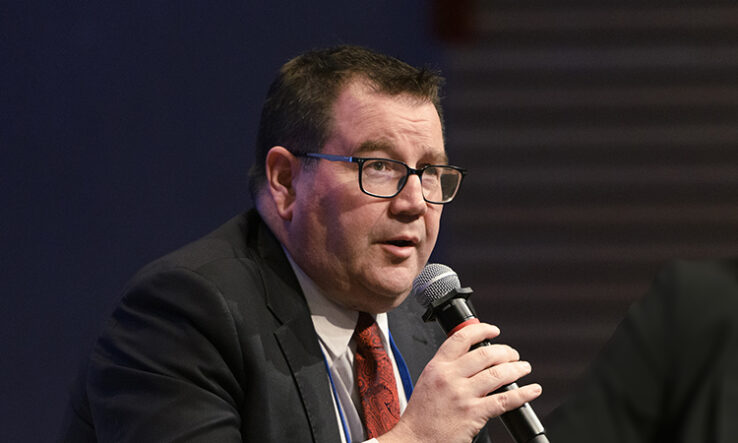
Image: World Bank [CC BY-NC-ND 2.0], via Flickr
Support for research praised, but universities “continue to slip backwards in our funding per student”
The creation of three research hubs has been announced in the New Zealand budget, as well as funding to support Horizon Europe access and more money for universities.
The measures were welcomed by the sector, although universities warned that their increases failed to keep pace with inflation.
Highlights of the budget include a NZ$451 million plan to build a “science city” of research hubs around Wellington, the capital city. The three hubs will focus on health and wellbeing; oceans, climate and hazards; and advanced manufacturing, biotech and energy futures.
Another NZ$55m will fund research fellowships and an applied doctoral training scheme to fill skills gaps. Science minister Ayesha Verrall said the fellowships would train 260 students over the next 10 years. Some will be reserved for Māori and Pacific candidates.
The government said its science and technology spending also included an ongoing commitment to the 15 per cent R&D Tax Incentive.
Delivering the budget to parliament on 18 May, finance minister Grant Robertson (pictured) said the spending was “consistent with our commitment to increase R&D expenditure to 2 per cent of GDP”.
The budget includes NZ$37.6m over the next four years to support New Zealand’s participation in the EU’s Horizon Europe research funding scheme.
The Crown Research Institute Plant and Food Research is receiving a one-off NZ$11m payment in 2022-23 to offset its losses from recent storms.
Three hubs
Each of the three new research hubs will have a different purpose and membership.
The climate change and disaster resilience hub will involve the National Institute of Water and Atmospheric Research, the GNS Science Crown Research Institute, Victoria University of Wellington and Massey University.
The health and pandemic readiness hub will include Victoria University of Wellington, the University of Otago, the Institute of Environmental Science and Research, the Malaghan Institute of Medical Research and Callaghan Innovation.
The technology and innovation hub will be a “park” in the suburb of Gracefield, bringing together Victoria University of Wellington, GNS Science, the Malaghan Institute and Callaghan Innovation to work on advanced manufacturing, energy and biotechnology.
Malaghan Institute director Graham Le Gros said the hub concept was “thoughtful and tightly linked”. It “breaks down silos that have been operating between institutions for many decades”.
Verrall said the hubs would “increase collaboration in research and science”. She promised “a significant investment in physical space and facilities to help entrepreneurs bring innovative new products to market” as the hubs were developed.
University funding
The vice-chancellors’ group Universities New Zealand said that a 5 per cent increase in funding for teaching work was “appreciated”.
However, executive director Chris Whelan said that “factoring in inflation forecasts for 2023 and 2024, Consumers Price Index will have gone up 34 per cent over a 10-year period. With today’s announcement, average student funding will have risen by 16 per cent over the same period—a drop in real terms of 18 per cent…We are continuing to slip backwards in our funding per student.”
He added: “Our hope is that as the economy recovers, the government will see that further investment in our universities is actually an investment in this country’s future.”
Tertiary Education Union national secretary Sandra Grey said the union sees “this as the first sign of genuine recognition of the significant underfunding that the tertiary education sector has been grappling with for decades”. She said it should prompt universities to rethink current plans to cut jobs.
Downsides
Several measures in the budget were criticised by sector bodies. Universities New Zealand said it was “unfortunate to see that the government has discontinued funding for the Centres of Asia-Pacific Excellence”.
The Tertiary Education Union, meanwhile, said that although there was new support for Māori education, the government still has “a long way to go towards a commitment to reflect a Tiriti-centric budget that will address the massive inequities Māori continue to face in the sector”. Te Tiriti, or the Treaty of Waitangi, contains principles for the protection of Māori culture.
Nicola Gaston, co-director of the MacDiarmid Institute for Advanced Materials and Nanotechnology, said the extra research funding was welcome, but she pointed out that with the wind-up of the National Science Challenges, NZ$80m less will be spent after this year. “I remain unclear as to exactly what extent this budget has moved the dial,” she said.